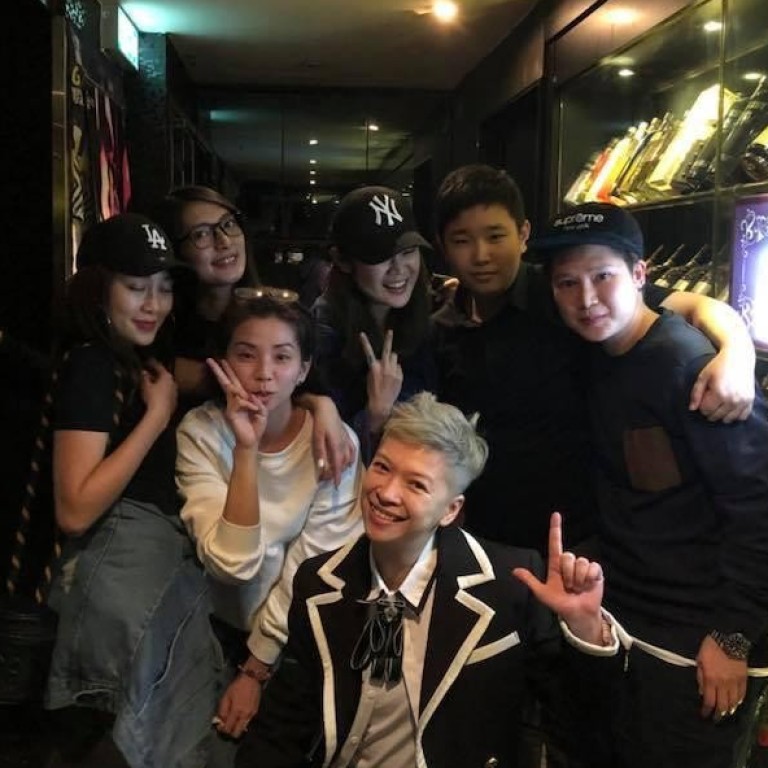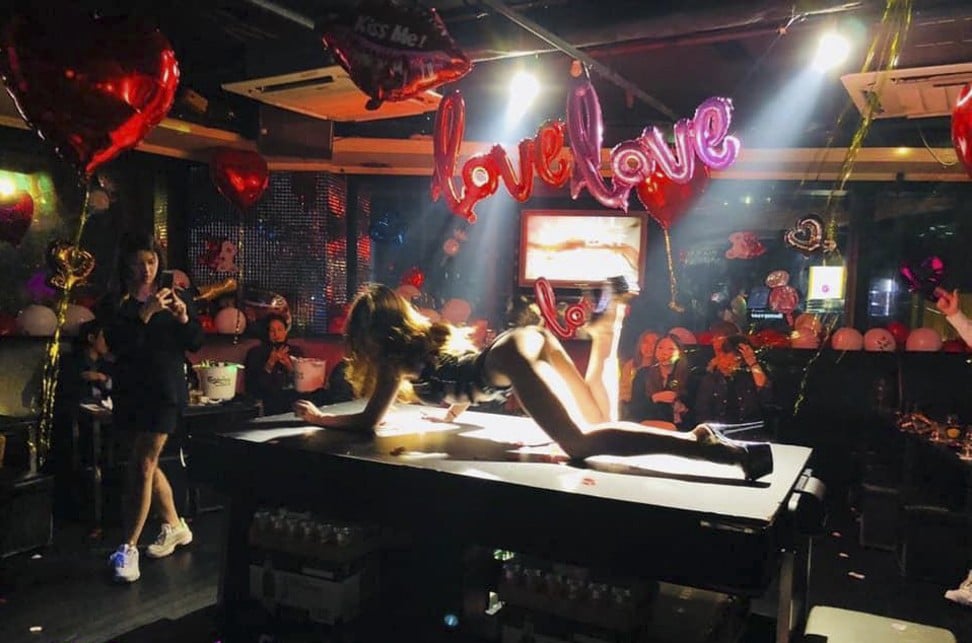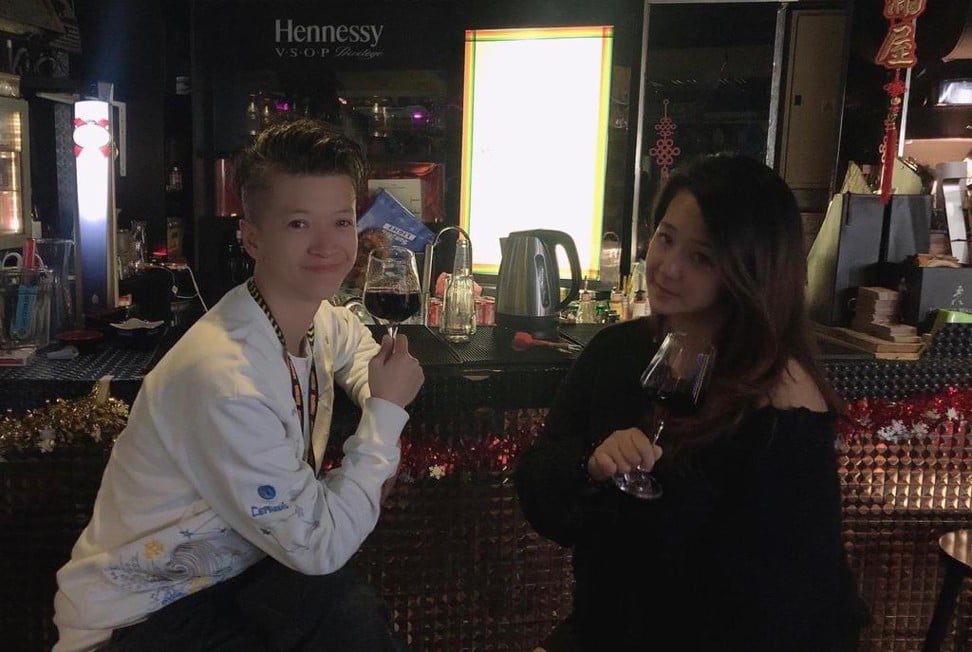
Hong Kong’s lesbian bars are vanishing, but for LGBT people it’s actually a good sign in the traditionally conservative city
- There were as many as nine lesbian bars in the Hong Kong scene’s heyday in the early 2000s, but that number has dropped to two: Virus and L’Paradis
- Hong Kong’s increasing tolerance of LGBT people means that many lesbians feel they can hang out at ordinary bars, ‘and people won’t look at us weirdly’
Tse Tong, the owner of Hong Kong’s first lesbian bar, does not mind that the lesbian bar scene in the city is declining as it reflects the traditionally conservative society’s increasing tolerance for LGBT people.
Where once lesbians felt excluded and marginalised in most places in the city, and went to lesbian-only bars to find friends and lovers, nowadays the only two remaining such bars in the city are a very different type of venue: men and heterosexuals are also welcome.
“[These bars] are no longer for meeting new singles,” Tong says. “They are a place for entertainment and for people to drink, which is different from the very beginning, when customers would come out every single week.”
Tong opened Virus bar in 1997. Now located in the trendy Causeway Bay area, it has moved several times but always remained on Hong Kong Island. When it opened, there was nowhere else in Hong Kong catering exclusively to lesbians. The city’s gay bars were largely men-only.

In the 90s, women could only go into gay bars if they were good friends with the venues’ male regulars, Tong recalls. Sometimes, according to the Hong Kong female queer activist group Les Corner, the bars would have quotas – a few women would be allowed to enter if they were accompanied by a much larger number of men.
“That was the culture,” Tong says. Similarly, “Everybody knew that if it was a lesbian bar, then boys were not allowed to enter. They thought guys were there to pick up chicks and check out girls.”
The beginner’s guide to Hong Kong nightlife: 16 places for all tastes
The early 2000s were the heyday for the city’s lesbian bars, when there were as many as nine, Tong says. She remembers when Virus was regularly packed with young lesbians eager to meet “like-minded” singles from the community. Nearly two decades later, only Virus and L’Paradis in Tsim Sha Tsui remain.
A few years after opening, Virus bar became gender-inclusive as Tong’s social circle expanded.
“I quite like it,” she adds. “I don’t have to limit the bar exclusively to lesbians.”

Boyi Tang, the vice-chair of Les Corner, says she no longer feels uneasy in a regular bar. As a self-proclaimed “party animal” she was once a regular in lesbian venues.
Tang and her group of friends would frequent a few different places, such as Temptation – a now-closed bar that also used to be in Tsim Sha Tsui – and L’Paradis, for a night out to avoid homophobes and awkward interactions with men.
“I think it is the changing landscape that makes us feel like there’s not a need for a specific bar to gather any more,” Tang says. “If we go out, we can hang out at an ordinary bar, and people won’t look at us weirdly.”
There are fewer customers compared to 10 years ago. Back then, on the street you didn’t see many lesbians holding hands. People didn’t have the guts to kiss in public
Dating apps have also taken over the role of meeting places for queer women, she adds.
“A lot of lesbians meet others online, unlike back in the day when people would invite girls from the other table and get to know each other at the bar,” Tang says.
Benita Chick, an LGBT city tour guide and a co-chair of Hong Kong’s 2020 Gay Games, says local lesbian bars don’t provide her with a way to meet like-minded fellow lesbians. Using the Butterfly forum app, however, she has met friends in the community who enjoy her own favourite pastimes, including scuba-diving and hiking.
“If you go to lesbian bars, everybody is under 25 years old, and I feel like I could be their mother,” she says.

And yet, despite the shrinking clientele, Virus and L’Paradis continue to provide a haven for lesbians in Hong Kong.
On one recent night at L’Paradis, which opened 19 years ago, customers included both women and men. Owners Van Lai and Wing Lam, themselves lesbians, admit that increasing public acceptance of homosexuality has contributed to the slow decline of bars like theirs.
“There are fewer customers compared to 10 years ago,” Lai says. “Back then, on the street you didn’t see many lesbians holding hands. People didn’t have the guts to kiss in public. Now … if you want to hold hands, then so be it. If you want to kiss, then kiss. People are more open-minded. But there are customers who still want a private place.”
The pair say they are delighted by society’s increasing tolerance of the LGBT community, even though turning a profit is tougher in the more open-minded climate.
“I think our sales are not the most important factor,” Lai says. “The most important factor is to provide a haven for people to hang out. This is my main goal.”
